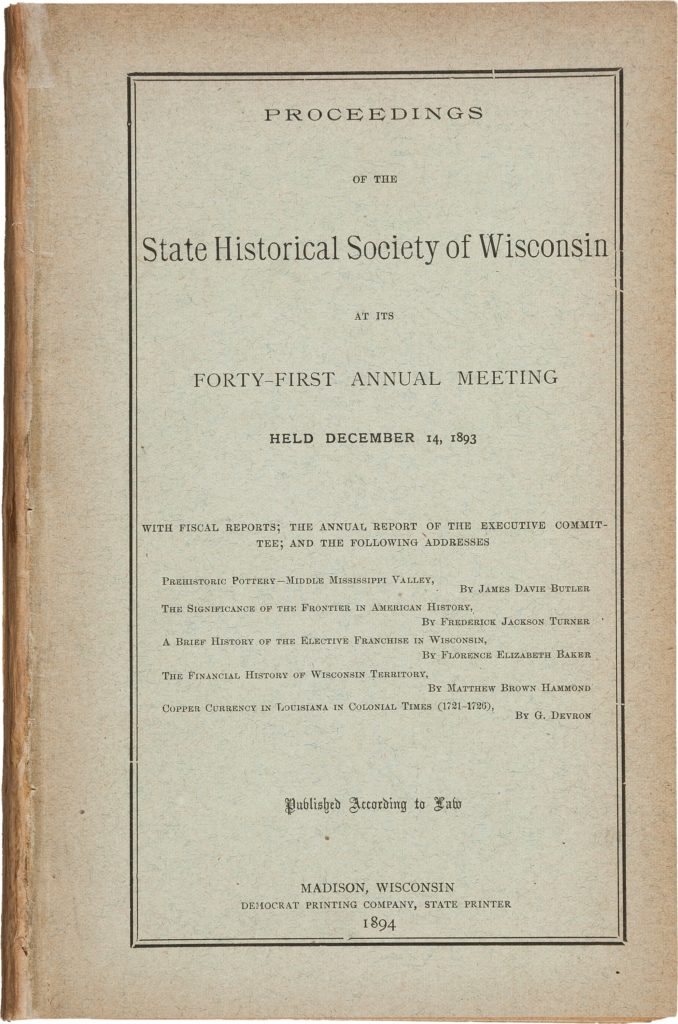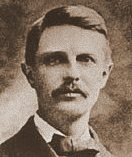
By Jim O’Neal

Frederick Jackson Turner was a young, undistinguished American historian at the University of Wisconsin in 1893, yet he was invited to join a list of speakers at a conference of the American Historical Association being held at the World’s Columbian Exposition in Chicago. The odd location had prompted many of the nation’s best scholars to decline to attend, primarily because of concern they would be reading their latest papers over the din of an outsized carnival.
Of course, the entire decade of the 1890s was viewed as unusual by many, with a pervasive sense that something important was ending. It was also a tumultuous time. The Massacre at Wounded Knee (1890) had resulted in the deaths of several hundred Lakota Sioux – the last major armed conflict between American Indians and the U.S. Army. Ellis Island had opened as a U.S. immigration depot and over the next 20 years, 13 million immigrants would enter via the island. Wyoming became the 44th state to enter the union, the first with women’s suffrage. There was the Panic of 1893, when the government almost ran out of gold and had to get help from J.P. Morgan.
More importantly, the census of 1890 reported that the frontier had vanished! Many Americans had a powerful sense that they were running up against the end of their history and were on the verge of something new, but unknown.
For Turner, this was a totally unexpected opportunity – a career breakthrough – to expound on his pet theology, developed over years of study. An avid fisherman, hiker and proponent of the American West, he had concluded that American life and character owed a debt to the pursuit of the frontier. And now, the 1890 census declared it closed – all of the land explored, claimed and settled. The young Turner saw a nation facing a crisis of the unknown.
However, Turner’s thesis was elementary and appealing. He declared that American pioneers were not simply transplanted Europeans, but a people unto themselves and shaped by their environment, as opposed to their history or institutions. The frontier hardship made them self-reliant and individualist. Free land made them generous and optimistic. Frontier challenges required them to adapt, innovate and even cooperate democratically.
Frederick Jackson Turner on the significance of the frontier in American history:
“American democracy was born of no theorist’s dream. It came out of the American forest and gained new strength each time it touched a new frontier.
“The wilderness masters the colonist. … It takes from him the railroad car and puts him in a birch canoe. It strips off the garments of civilization and arrays him in the hunting shirt and moccasin. … Little by little he transforms the wilderness, but the outcome is not the old Europe. … Here is a new product that is American.”
Teddy Roosevelt and I both wholeheartedly agree with Turner’s thesis about the role of the frontier in shaping the character of Americans.
 Intelligent Collector blogger JIM O’NEAL is an avid collector and history buff. He is President and CEO of Frito-Lay International [retired] and earlier served as Chairman and CEO of PepsiCo Restaurants International [KFC Pizza Hut and Taco Bell].
Intelligent Collector blogger JIM O’NEAL is an avid collector and history buff. He is President and CEO of Frito-Lay International [retired] and earlier served as Chairman and CEO of PepsiCo Restaurants International [KFC Pizza Hut and Taco Bell].
